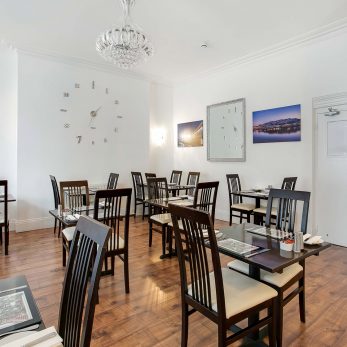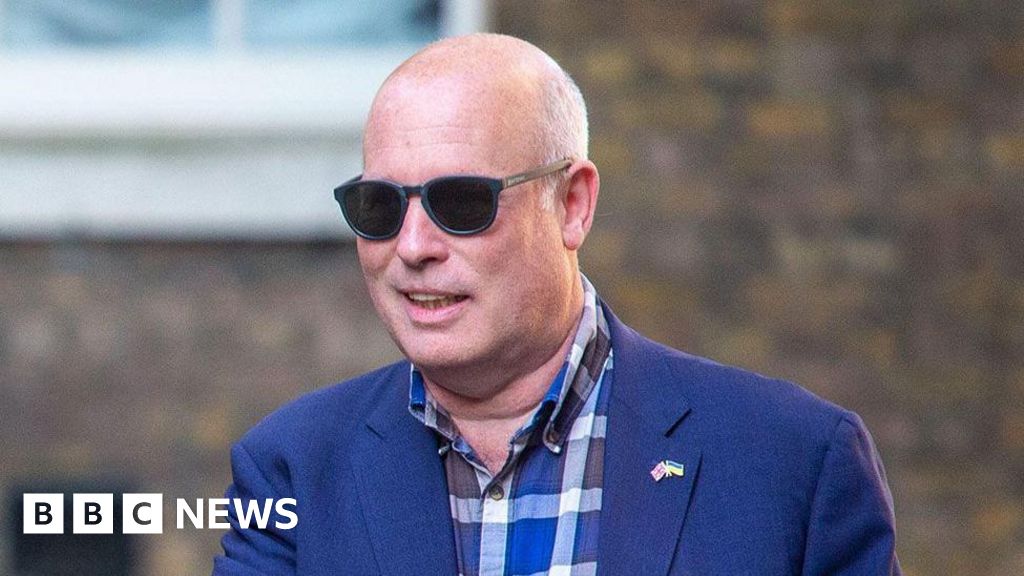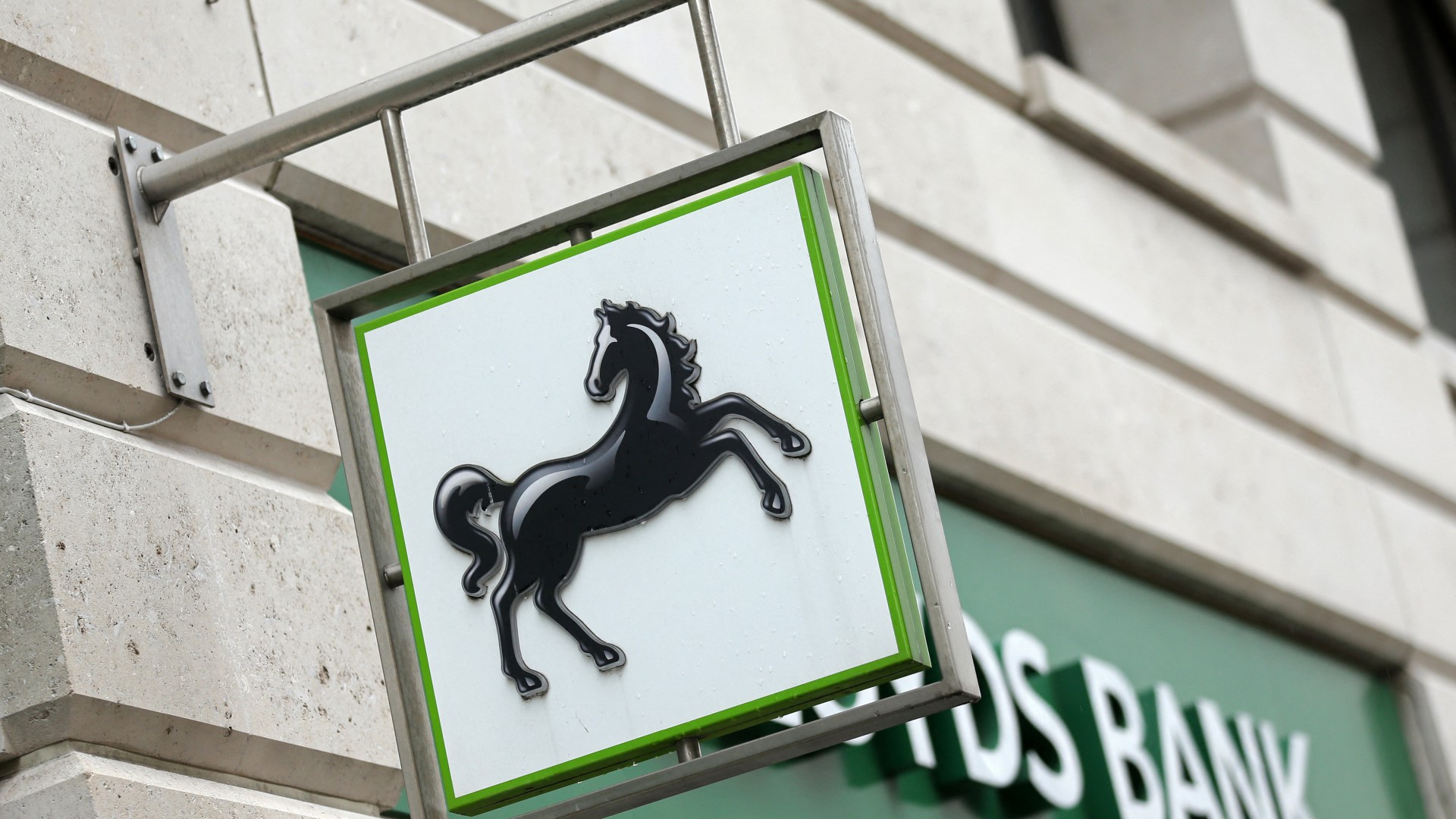In a command post near the embattled eastern Ukrainian city of Pokrovsk, soldiers of the Separate Presidential Brigade bemoan the dithering in Washington about whether Kyiv can use western missiles to strike targets inside Russia.
If only they were able to fight “with both hands instead of with one hand tied behind our back”, then Ukraine’s plucky troops might stand a chance against a more powerful Russian army, laments an attack drone operator.
Surrounded by video monitors showing the advancing enemy, the battalion’s commander says his objectives have begun to shift.
“Right now, I’m thinking more about how to save my people,” says Mykhailo Temper. “It’s quite hard to imagine we will be able to move the enemy back to the borders of 1991,” he adds, referring to his country’s aim of restoring its full territorial integrity.
Once buoyed by hopes of liberating their lands, even soldiers at the front now voice a desire for negotiations with Russia to end the war. Yuriy, another commander on the eastern front who gave only his first name, says he fears the prospect of a “forever war”.
“I am for negotiations now,” he adds, expressing his concern that his son — also a soldier — could spend much of his life fighting and that his grandson might one day inherit an endless conflict.
“If the US turns off the spigot, we’re finished,” says another officer, a member of the 72nd Mechanised Brigade, in nearby Kurakhove.
Ukraine is heading into what may be its darkest moment of the war so far. It is losing on the battlefield in the east of the country, with Russian forces advancing relentlessly — albeit at immense cost in men and equipment.

It is struggling to restore its depleted ranks with motivated and well-trained soldiers while an arbitrary military mobilisation system is causing real social tension. It is also facing a bleak winter of severe power and potentially heating outages.
“Society is exhausted,” says Oleksandr Merezhko, chair of the foreign affairs committee of the Ukrainian parliament.
At the same time, Ukrainian President Volodymyr Zelenskyy is under growing pressure from western partners to find a path towards a negotiated settlement, even if there is scepticism about Russia’s willingness to enter talks any time soon and concern that Ukraine’s position is too weak to secure a fair deal right now.
“Most players want de-escalation here,” says a senior Ukrainian official in Kyiv.
The Biden administration is aware that its present strategy is not sustainable because “we are losing the war”, says Jeremy Shapiro, head of the Washington office of the European Council on Foreign Relations. “They are thinking of how to move that war to a greater quiescence.”
Most threatening of all for Kyiv is the possibility that Donald Trump wins next month’s US presidential election and tries to impose an unfavourable peace deal on Ukraine by threatening to withhold further military and financial aid. Trump repeated his claim last week that he could rapidly bring an end to the war.
Ukraine’s staunchest supporters in Europe may wish to keep it in the fight but lack the weapons stockpiles to do so and have no plan for filling any void left by the US.
Kyiv confirmed it was laying the groundwork for future talks in spectacular fashion when its troops seized a swath of Russia’s Kursk region in a surprise cross-border incursion in August. Zelenskyy said the land would serve as a bargaining chip.
And last week, in an attempt to shape the thinking of his allies, Zelenskyy visited the US to market his so-called “victory plan”, a formula for bolstering Ukraine’s position before possible talks with Moscow. Zelenskyy described it as a “strategy of achieving peace through strength”.

Stepping into the maelstrom of the US election campaign, he held separate talks with President Joe Biden, vice-president Kamala Harris and her Republican opponent, Trump, to make his case.
At one point, Zelenskyy’s US mission veered towards disaster after he was criticised by Trump for resisting peace talks and censured by senior Republicans for visiting a weapons factory in the crucial swing state of Pennsylvania accompanied only by Democratic politicians. But in the end, he persuaded Trump to grant him an audience and salvaged his visit.
“It was not a triumph. It was not a catastrophe,” the senior Ukrainian official says of Zelenskyy’s US trip. “It would be naive to expect the applause we got two years ago,” the official adds, referring to the president’s address before Congress in December 2022, for which he received multiple standing ovations and declared that Ukraine would “never surrender”.
Yet the Ukrainian leader left Washington empty-handed on two central issues: US permission to use western weapons for long-range strikes on Russian territory; and progress on Ukraine’s bid to join Nato. The Biden administration has resisted both, fearing it could encourage Moscow to escalate the conflict, potentially drawing in the US and other allies.
US officials were unimpressed by Zelenskyy’s “victory plan”, which includes requests for massive amounts of western weaponry.
An adviser who helped prepare the document says Zelenskyy had no choice but to restate his insistence on Nato membership because anything else would have been perceived as a retreat on the question of western security guarantees, which Ukrainians see as indispensable.
Despite Washington’s misgivings, the ability to strike Russian territory is also central to Zelenskyy’s victory plan, says the adviser. While US officials have argued that Russia has already moved strike aircraft beyond the range of western missiles, Ukrainian officials insist there are plenty of other targets such as command centres, weapons caches, fuel depots and logistics nodes.
Destroying them could disrupt Moscow’s ability to wage war, show Russian leader Vladimir Putin that his objectives of seizing at least four whole provinces of Ukraine are untenable and disprove his conviction that the west will lose interest in supporting Ukraine.
“Russia should not be overestimated,” says Andris Sprūds, Latvia’s defence minister. “It has its vulnerabilities.”
Although Zelenskyy’s victory plan restated old objectives, its real significance is that it shifts Ukraine’s war aims from total liberation to bending the war in Kyiv’s favour, says the senior Ukrainian official.
“It’s an attempt to change the trajectory of the war and bring Russia to the table. Zelenskyy really believes in it.”
Multiple European diplomats who attended last week’s UN General Assembly in New York say there was a tangible shift in the tone and content of discussions around a potential settlement.
They note more openness from Ukrainian officials to discuss the potential for agreeing a ceasefire even while Russian troops remain on their territory, and more frank discussions among western officials about the urgency for a deal.
Ukraine’s new foreign minister, Andrii Sybiha, used private meetings with western counterparts on his first trip to the US in the post to discuss potential compromise solutions, the diplomats said, and struck a more pragmatic tone on the possibility of land-for-security negotiations than his predecessor.
“We’re talking more and more openly about how this ends and what Ukraine would have to give up in order to get a permanent peace deal,” says one of the diplomats, who was present in New York. “And that’s a major change from even six months ago, when this kind of talk was taboo.”
Ukrainian public opinion also appears to be more open to peace talks — but not necessarily to the concessions they may require.
Polling by the Kyiv International Institute of Sociology for the National Democratic Institute in the summer showed that 57 per cent of respondents thought Ukraine should engage in peace negotiations with Russia, up from 33 per cent a year earlier.
The survey showed the war was taking an ever heavier toll: 77 per cent of respondents reported the loss of family members, friends or acquaintances, four times as many as two years earlier. Two-thirds said they were finding it difficult or very difficult to live on their wartime income.

Life is about to get even tougher. Russia has destroyed at least half of Ukraine’s power-generating capacity after it resumed mass drone and missile strikes against power stations and grid infrastructure this spring.
Ukraine faces a “severe” electricity deficit of up to 6GW, equivalent to a third of peak winter demand, according the International Energy Agency. It is increasingly dependent on its three remaining operational nuclear power plants, the IEA noted. Were Russia to attack substations adjacent to these plants — despite all the obvious dangers — it could cause Ukraine’s power system to collapse, and with it heating and water supply. Central heating facilities in large cities such as Kharkiv and Kyiv are also vulnerable.
Another source of tension is mobilisation. Under new legislation, millions of Ukrainian men have been compelled to register for possible service or face hefty fines. At the same time, many Ukrainians know of men who have been randomly stopped at metro or train stations, often late at night, and carted off to mobilisation centres, a brief period of training and then the front line.
55%Share of Ukrainians who remain opposed to any formal cession of territory as part of a peace deal, down from a peak of 87 per cent last year
“It is perceived as abusive, worse than if you are a criminal, where there is at least due process,” says Hlib Vyshlinksy, director of the Centre for Economic Strategy in Kyiv. “It tears people apart. The real enemy is Russia, but at the same time they fear a corrupt, abusive enrolment office doing the wrong thing.”
If Ukrainians have warmed to the idea of negotiations, a majority — 55 per cent according to a KIIS polling in May — remain opposed to any formal cession of territory as part of a peace deal.
“People want peace but they are also against territorial concessions. It is hard to reconcile them,” says Merezhko, the chair of the foreign affairs committee.
However, the KIIS survey shows the share of respondents opposed to any territorial concessions has dropped sharply from a peak of 87 per cent early last year. It also found that Ukrainians might be open to a compromise whereby, in return for Ukrainian membership of Nato, Russian maintains de facto control over occupied parts of Ukraine, but not recognised sovereignty.
Other polls suggest Ukrainians are still confident of winning and will be disappointed by anything other than total battlefield victory. The biggest domestic problem for Zelenskyy might come from a nationalist minority opposed to any compromise, some of whom are now armed and trained to fight.

“If you get into any negotiation, it could be a trigger for social instability,” says a Ukrainian official. “Zelenskyy knows this very well.”
“There will always be a radical segment of Ukrainian society that will call any negotiation capitulation. The far right in Ukraine is growing. The right wing is a danger to democracy,” says Merezhko, who is an MP for Zelenskyy’s Servant of the People party.
As the KIIS polling shows, making any deal acceptable that allows Russia to stay in the parts of Ukraine it has seized since its first invasion in 2014 will hinge on obtaining meaningful western security guarantees, which for Kyiv means Nato membership.
“The most important thing for us is security guarantees. Proper ones. Otherwise it won’t end the war; it will just trigger another one,” says a Ukrainian official.
“Land for [Nato] membership is the only game in town, everyone knows it,” says one senior western official. “Nobody will say it out loud . . . but it’s the only strategy on the table.”
Nato membership remains Ukraine’s key goal, but very few of the alliance’s 32 members think it is possible without a full, lasting ceasefire and a defined line on the map that determines what portion of Ukraine’s territory the alliance’s mutual defence clause applies to. The model floated by some is West Germany’s membership of the alliance, which lasted more than three decades before the fall of the Berlin Wall and reunification with the east.
“The West German model is gaining traction particularly in the White House, which has been the most sceptical about Nato membership,” says Shapiro of the ECFR. “The Russians would hate that, but at least it could be some opening gambit for a compromise.”
But even that would require a vast force deployment by the US and its partners that any US administration, Democratic or Republican, would likely balk at, given Washington’s focus on the threat from China. One question would be whether European powers would be willing to shoulder more of the burden.

And would Russia accept Ukraine’s entry into the alliance, an alignment with the west it has been trying to thwart militarily for a decade? Many on both sides of the Atlantic say it is unlikely.
“I don’t think Russia would agree to our participation in Nato,” says a senior Ukrainian official.
Anything short of full membership is unlikely to be enough to stop the Kremlin’s military aggression. “Even if we get a Nato invitation, it will mean nothing. It’s a political decision,” adds the senior Ukrainian official.
In what could be his last trip to Europe before standing down as president, Biden will chair a meeting of Ukraine and its allies in Germany on October 12.
A western official briefed on Zelenskyy’s talks in Washington said there were tentative signs that Biden might agree to advance the status of Ukraine’s Nato membership bid before he leaves office in January.
As he left the US this weekend, Zelenskyy said that October would be “decision time”. The Ukrainian leader will once again plead for permission to hit targets inside Russia with western-supplied munitions, knowing that it is one of the few options for bringing hostilities to an end.
“It’s about constraining Russia’s capabilities” and piling on pressure to get them to open talks, says the senior Ukrainian official. “It’s a real chance if we are thinking about resolving this war.”
Cartography by Cleve Jones













































































































































You must be logged in to post a comment Login